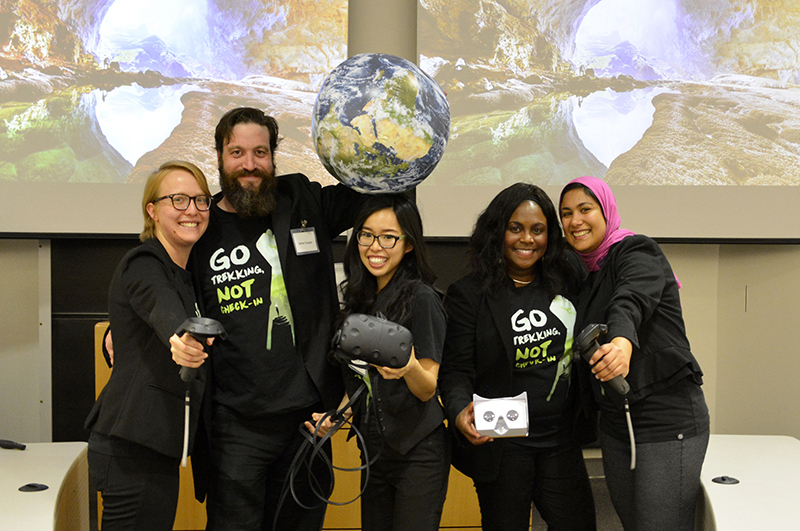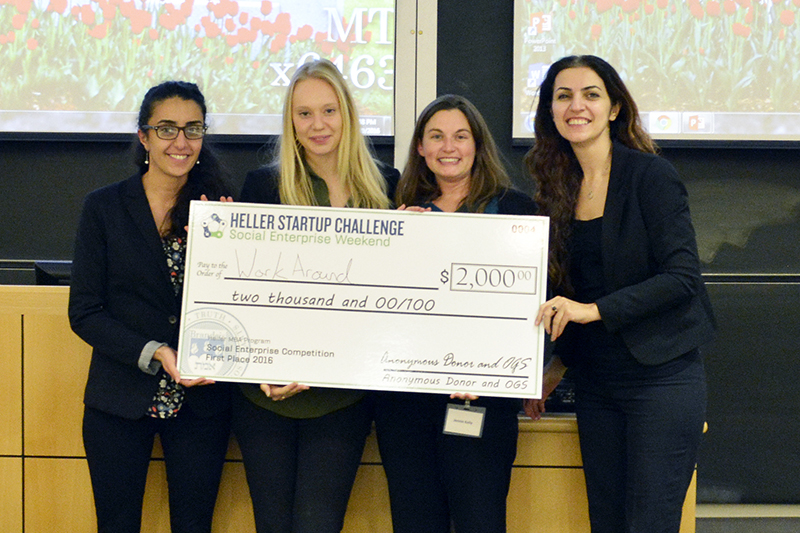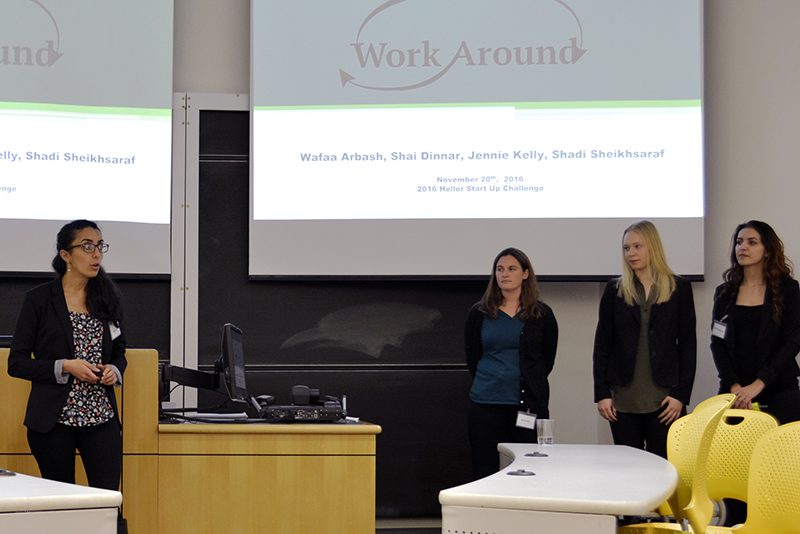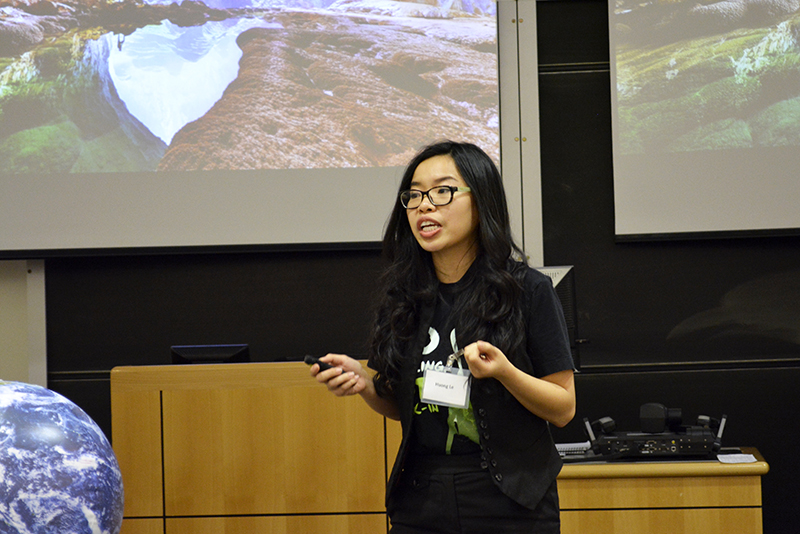By Bethany Romano
The Heller Startup Challenge is an annual weekend event held in November in which students develop social enterprise ideas and compete for a cash prize. On the weekend of November 18-20, teams of Heller students and recent alumni developed and tested their startup ideas, met with mentors and pitched their business plan to a panel of judges. Heller Communications interviewed two of the winning teams: Team WorkAround (first place) and Team REST (runner-up) to learn more about their startup ideas and their experience at the Heller Startup Challenge.
First Place: Team WorkAround
Wafaa Arbash, MA SID/COEX'17, Shai Dinnar'20, Jennie Kelly, MA SID/MBA'17, and Shadi Sheik Saraf MA SID/COEX'17
Tell us about your startup idea.
WorkAround is an online platform that connects untapped skilled refugee youth with the growing market for online micro-tasking.
Currently, Syria has the largest number of refugees since World War 2. Refugees face many challenges in their host communities. Less than one percent of refugees are able to finish their education, they are unable to work because they are often restricted by their host communities' policies, and many turn to work on the black market, making them vulnerable to human rights violations.
Moreover, merely providing aid to refugees is not a sustainable way for anyone to move forward. Refugees need to be self-sufficient, have control over their lives, and regain the dignity that is lost when they are labeled as refugees and burdened with restrictive policies.
WorkAround uses the new and as yet unregulated market of online gig economies to work around this problem, and partners with NGOs to provide alternative banking solutions. WorkAround will provide refugees with training and a living wage through online micro-task work while linking them with online learning universities so they can continue their education while they work.
How did participating in the Heller Startup Weekend help your idea change and grow?
Each time we met with a mentor during the weekend, we were forced to think through some element of the business model in a new way. The mentors helped us think through risks, make difficult decisions, and also helped us hone our idea into a very streamlined six-minute pitch.
What's next for your startup? Any plans to pursue this further?
Next for us is the Hult Prize at Brandeis competition on December 3. If we win there, we will move on to the regional finals and have the chance to compete for one of five finalist slots and present at the Clinton Global Initiative in September 2017 for a chance to win $1 million to fund our idea. We are also planning to continue working on this with the help of the Spark Challenge here at Brandeis. We truly believe that ideas like ours are necessary to help restore dignity to refugees and provide them with the economic opportunities they need to succeed. Untapped youth are at risk of reentering conflicts or being targeted by drug dealers, gangs, or human trafficking. Solutions like ours help channel the skills and energy of these youth toward productive futures that will benefit them and their host communities.

Runner-up: Team REST
Gail Carter, MA SID'18, Aaron Cooper, MA SID'17, Mariam Hassan, MBA'16, Huong Le, MBA/MA SID'17, and Caryn Oppenheim, MBA'16
Tell us about your startup idea.
Imagine the sound of running water and the dripping of stalactites. Hear the echo of your voice, the sound of birds. Rappel down limestone walls. See the darkness and clouds, the light shining through. Witness the evolution of new species in front of your eyes. You are in the world's largest cave - Soon Dong, also known as Mountain River Cave - in central Vietnam.
Mass tourism significantly affects delicate ecosystems in places like Soon Dong. Not to mention, exploration of the cave requires $3,000, seven days, and an abled body.
Responsible Environmental Stewardship and Tourism (REST) delivers an educational immersive experience in high-tech format and near physical replication at your local science museum. Our exhibit offers Vietnamese, who cannot experience the real beauty of the cave, into our virtual reality experience.
How did participating in the Heller Startup Challenge help your idea develop?
Meeting with the mentors on Saturday was an exhausting process and tested our group dynamic. The mentors forced us to clarify our problem and solution. They made us focus on what was crucial to our model by offering contrasting opinions, which forced us to see where our group consensus truly lied. We ended restricting our model to Vietnam to begin with instead of both Vietnam and the United States. This allowed us to construct the model around what really mattered - the local people and their natural treasure.
What is next for your startup? Any plans to pursue this further?
REST will present our model for our final presentation for Carole Carlson's Social Entrepreneurship course. Some of our team members are taking the plan to the Hult Prize. Our team is planning on developing the idea further with the help of resources such as professor Carole Carlson and Rebecca Menapace from the Brandeis University MakerLab. It's exciting to see where these next steps take us.



